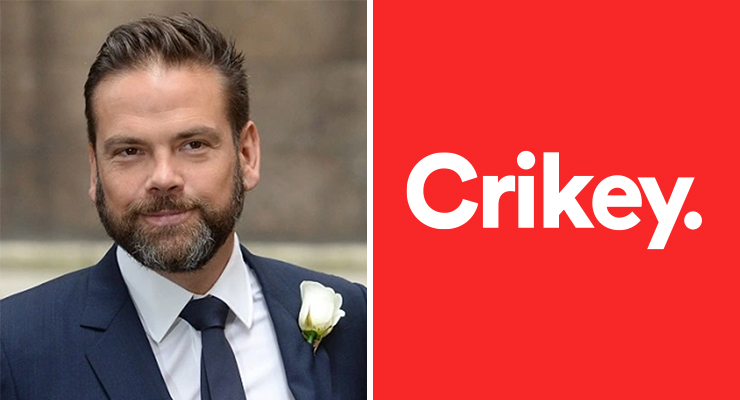
The notion that an article published in Crikey linking the Murdoch family to the deadly US Capitol riots in January 2021 did not cause Lachlan Murdoch serious harm is “farcical”, the Federal Court heard on Friday morning.
Murdoch is suing Crikey’s publisher Private Media, journalist Bernard Keane and Crikey’s editor-in-chief Peter Fray.
In the first hearing for the matter, Murdoch’s barrister Sue Chrysanthou SC told the court the article, which was written by Keane and published on June 29 and republished on August 15, accused the Murdochs of being connected to “underhanded criminality which resulted in death”.
In the January 6 riots, in which five people died, about 2000 people entered the US Capitol building following statements by former US president Donald Trump that the November 2020 election had been “stolen by emboldened radical-left Democrats”.
The Crikey article named the Murdoch family as “unindicted co-conspirators” of former US president Donald Trump, due to the Murdoch family’s ownership of Fox News, which had amplified these statements.
Most of this morning’s proceedings were concerned with working out a timetable for the hearing. Justice Michael Wigney indicated that the earliest possible date for the proposed nine-day hearing would be March 27 next year, but parties will return to court on October 10 for an interlocutory hearing.
Private Media is using a new public interest defence, in what is likely to be the first test of the law in Australia. In addition, a new “serious harm” test is now law in most parts of Australia, including NSW, where the trial will be held. The publisher denies that the article satisfies the serious harm test, a matter which was strongly disputed in court this morning.
Chrysanthou said that the provision had been intended only to “weed out trivial, vexatious, backyard disputes”.
On Wednesday, Will Hayward, CEO of Private Media, issued a statement and video.
“Taking on this fight is risky and we are not foolish enough to predict its outcome,” Hayward said.
“However, we believe that there is an issue of fundamental public importance at stake, and that is why we are defending the case brought against our company and our journalists.”








With stage 4 metastatic lung cancer this pensioner may not be around to see the outcome or read about it in Crikey having just renewed my annual subscription. Conquor Crikey conquor! I urge those with the means to support you in the endeavour.
Sending strength and peace.
As Martin Luther King said: “The arc of the moral universe is long, but it bends toward justice.” Thanks for helping to bend the arc and wishes for moments of peace and wonder despite the cancer.
Thank you for the update.
As an avid subscriber who has also contributed to Crikey’s legal fighting fund, could you please explain how Crikey’s reaction to this legal threat is different to that of FriendlyJordies‘ (YouTube channel) response to a deformation threat from John Barilaro? Based largely on conjecture, Crikey vociferously condemned FJ’s reaction as a cynical money-making exercise.
I don’t always agree with FJ, but if you’re going to be indignant about matters of hypocrisy, as Crikey often is, then how about a response on this, if only to mitigate the risk of hypocrisy on Crikey’s hypocrisy.
*Crikey article: Friendlyjordie$: how the Australian YouTuber makes money to pay for his upcoming legal battles @ 17/6/2021.
Jordan Shanks and Crikey are not friends and regularly exchange barbs. Crikey has a couple of old crusties and a bevy of millennial writers. Crikey borders on being woke, reflected in its editorial standards.
Whaa,”…borders on being woke…”?
I doubt that ‘border’ could be seen in this charabanc’ rearview mirror as it zooms complacently towards the cliff edge of reality.
A Flat earth has a well defined cliff edge. Not so independent either. Maybe financially, not in editorial
‘Woke”? I might have an issue with Crikey wrt FriendlyJordies, but wokeness is nothing but a right-wing dog whistle. And what’s wrong with being woke, i.e. being considered? Your argument is spurious and stinks of right wing propaganda, go hitch your wagon elsewhere.
As usual my first reaction is to laugh at your sanctimonious righteousness. When I read in Crikey that men can have babies, that’s woke. That’s unhinged. Woke is not be considered or considerate, it’s demanding that ones narcissisism be recognised as legitimate identity that isn’t narcissistic.
I also read that Tony Abbott should be cancelled. Tony abbott is the class clown, there for entertainment. And I am so far from partisan of any flavour that if your persist in defining me as a partisan, we should sort out out differences in court for defamation or on the Battle field, my preference.
As usual my first reaction is to laugh at your sanctimonious righteousness. When I read in Crikey that men can have babies, that’s woke. That’s unhinged. Woke is not be considered or considerate, it’s demanding that ones narcissisism be recognised as legitimate identity that isn’t narcissisticq
To be clear, woke started off having validity when it applied to racial injustice, then expanded into social injustice. But like many well meaning concepts, it became a bandwagon for hangers-on and as a cover for the hurt feelings brigade and cancel culture brigade. One might not like something or someone, but their right to exist and have opinion is just as valid as anyone else’s right. And I won’t even tell you to hitch your wagon elsewhere. Be as loud as you want, it’s your right.
Just play the judge an hour of Fox News and Tucker Carlson and the case will be thrown out of court.
Or submit this > https://dangerousspeech.org/tucker-carlson-is-inciting-violence-against-doctors/ re: Carlson placing Drs lives at risk.
To say that the claim that of no serious harm is ‘farcical’ is an attempt to sway what should be a neutral assessment of the harm with an ambit claim. We have seen a lot of this kind of unmoored nonsense from Trump’s various legal teams. I’d like to see the judge return such claims for a rewrite which relates properly to whatever is in the legislation.
I thought the same about the claims made in the recent, very high profile defamation case.
I understand that Crikey’s solicitor in this case is Michael Bradley; is he also counsel, or has Crikey engaged someone else as counsel?